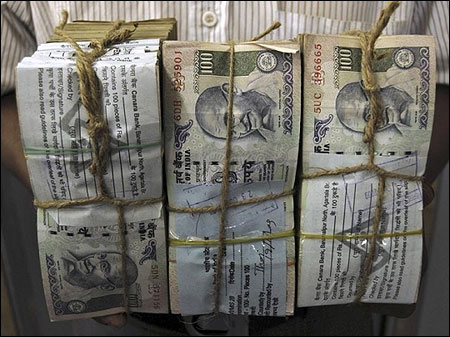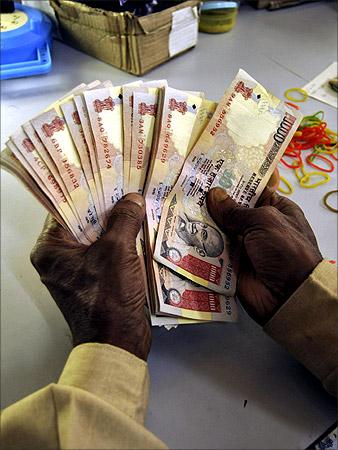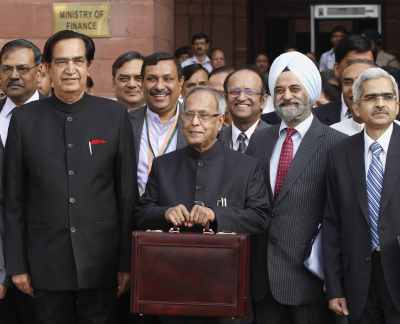 | « Back to article | Print this article |
Now, prosecution of tax evaders made easier
Retrospective amendments to handle cases akin to the Vodafone deal and provisions to tackle black money as proposed in the Budget may have received huge attention, but that isn't all about it.
A 'silent amendment' to the Income Tax Act related to prosecution powers is being seen as a crucial change.
This would allow officials involved in an investigation to take a quick call on initiating prosecution in tax-evasion cases.
A senior finance ministry official said on Tuesday the proposed change in the Finance Bill, 2012, would broaden the definition of commissioner.
Click NEXT to read further. . .
Now, prosecution of tax evaders made easier
It would now include the director, thus allowing a director of investigation and also director of criminal investigation to sanction prosecution, he told Business Standard.
The source explained that, at present, the officials from the investigation department and also newly created directorate of criminal investigation had to take sanction from a commissioner for prosecution.
This process takes a lot of time and involves complications.
"Now, with the definition of commissioner including director, the directors of investigation and also criminal investigation can take a call on prosecuting a person quickly," he noted.
Click NEXT to read further. . .
Now, prosecution of tax evaders made easier
Thus, if a search stumbles upon evidence of falsification of records or intentional presentation of inaccurate particulars of income, "the directors can initiate the prosecution process without waiting for assessment or seeking the sanction of the commissioner concerned", he pointed out to explain how it would work.
According to the memorandum explaining the provisions in Finance Bill, 2012, the post of commissioner and the post of a director of income-tax is inter-changeable.
"It is therefore proposed to amend the provisions of section 2 to include a director of Income-tax appointed under sub-section (1) of section 117 within the definition of a Commissioner," the memorandum said.
Click NEXT to read further. . .
Now, prosecution of tax evaders made easier
"This amendment will take effect retrospectively from the 1st day of April, 1988 and will accordingly apply to assessment year 1988-89 and subsequent assessment years."
With this measure to ensure quick decision-making on initiating prosecution cases, the government has brought in steps to expedite prosecution proceedings so that the cases could be taken to their logical conclusion speedily.
The Finance Bill, 2012, has proposed to strengthen the prosecution mechanism by providing for constitution of special courts for trial of offences and application of summons trial for offences under the Act to expedite prosecution proceedings as the procedures in a summons trial are simpler and less time consuming.
Click NEXT to read further. . .
Now, prosecution of tax evaders made easier
It has also provided for appointment of public prosecutors, and has also amended the threshold limits for punishment in different cases.
The existing provisions provide that in a case where the amount of tax, penalty or interest which would have been evaded by a person exceeds Rs 100,000, he will be punishable with rigorous imprisonment for a term which will not be less than six months but which may extend to seven years and with fine.
In case the amount which would have been evaded by a person does not exceed Rs 100,000, he will be punishable with rigorous imprisonment for a term which shall not be less than three months but which may extend to three years and with fine.
Click NEXT to read further. . .
Now, prosecution of tax evaders made easier
The threshold of Rs 100,000 was introduced in 1976. It is now proposed to be amended so that the revised threshold will be Rs 250,000.
Summons trials apply to offences where the maximum term of imprisonment does not exceed two years.
It has been now proposed that where the amount which would have been evaded does not exceed Rs 250,000, the person will be punishable with rigorous imprisonment for a term which shall not be less than three months but which may extend to two years and with fine.
These amendments will take effect from July 1 this year.






